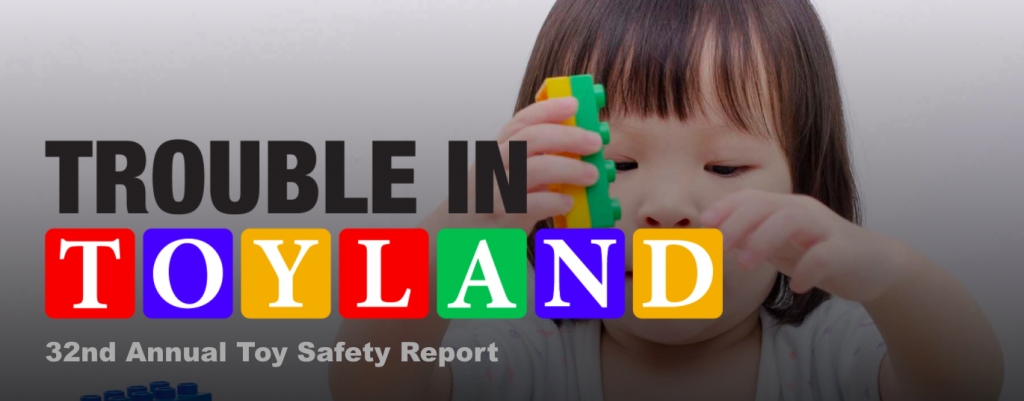
Just in the time for the holiday season, the Southern Oregon University’s OSPIRG (Oregon Student Public Interest Research Group) released the 32nd annual toy safety report, Trouble in Toyland, from the U.S. Public Interest Research Group, to share the number of hazardous toys still being sold in the U.S. market.
This year’s report focused on four toys that pose child safety issues including fidget spinners with extreme amounts of lead, small games that present choking hazards, balloons sold with misleading warning labels and a doll that threatens children’s privacy.
The Fidget Wild Premium Spinner, both in brass and metal, were pulled from Target shelves and the Target website Nov. 11th due to the excess levels of lead found in these fidget spinners, according to USA Today. The Fidget Wild Premium Brass contained 33,000 parts per million (ppm) of lead in the center circle of the fidget spinner and 22,000 ppm of lead on the arm, according to U.S. PIRG. The Fidget Wild Premium Metal contained 1,300 ppm of lead in the center circles of the fidget spinner and 520 ppm of lead on the arm.
Children exposed to lead are exposed to an increase chance of brain or nerve damage, decreased development, learning behavior problems, and hearing or speech problems, according to the Centers for Disease Control and Prevention.
Toys sold to children 12 years of age and younger are not permitted to have more than “100 parts per million (ppm) of total lead content in accessible parts,” according to the U.S. Consumer Product Safety Commision. Since Target advertised the fidget spinners to children 14 years of age and older the lead regulation levels did not apply to this age group. PIRG claims that Fidget Wild, fidget spinners were sold on Target.com for children both 6+ and 14+ citing a screenshot of Target’s website as evidence.
In addition, a “Peg Game,” “Football,” and “Golf,” (see picture below) advertised to children ages 3 and 6 years old do not contain proper choking hazard labels. The Trouble in Toyland report found five balloons (see picture below) that pose misleading choking hazard labels.


The report found a smart doll that threatens child privacy. “My Friend Cayla” is a communicative doll that has the capability to talk and interact with children through the use of speech recognition technology. “This doll can pick up any conversation within an earshot of the doll,” explained Morgan Bechtold-Egne, OSPIRG Campus Organzier. The doll was banned in Germany in Feb. for a violation of privacy laws. In the United States “My Friend Cayla,” is under scrutiny by many consumer groups because the doll could be breaking the Child’s Online Privacy Act.
“It made me yearn for the days of slinkies and hula hoops,” said Debby Gary, the Director of the Schneider Children’s Center, referencing the doll.
In 2016 there were seven reported toy-related deaths from children 12 years of age or younger, according to the U.S. Consumer Product Safety Commision. “What saddens me is that we have to recall so many toys. We should be in a position where don’t even have to do that,” said Gary.
To access more information regarding toys that have been recalled click here. To report dangerous toys click here.



